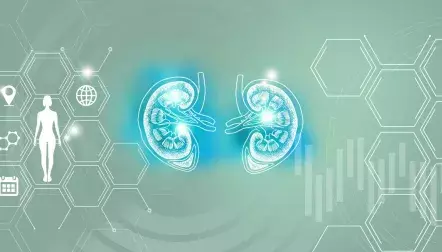
Recovery after transplant surgery
- Medically reviewed by
- AKF's Medical Advisory Committee
- Last updated
- December 5, 2025
Jump to
What can I expect after transplant surgery?
Recovery after kidney transplant surgery can be different for every person. In general, this is what to expect.
Recover in the hospital for 3-4 days after surgery
Your transplant team will closely watch your recovery while you are in the hospital. It is common to feel some discomfort in the first week after surgery. Your belly area and side may be sore, and you may also feel weak and tired while you are healing. Usually, it is best to get up and start slowly moving around one day after surgery.
Your new kidney may start working right away, and you will have more energy. If your new kidney takes a few days to start working, you will need dialysis for a short time until it starts working.
Go to follow-up visits with your doctor
Before, or soon after you leave the hospital, you will schedule follow-up visits with your doctor. Your transplant center will talk with you about your specific schedule. For example, during the first month after you leave the hospital, you may have doctor visits and lab work 1-2 times a week. Over time, you will have fewer visits and blood draws per week.
If you live far from the transplant center, you will need to make a plan to get to your follow-up visits. Talk to your transplant center about resources and programs to help you with travel and lodging.
Many doctors offer telehealth (video or telephone) visits as an option. Ask your doctor's office if you can schedule some telehealth visits, instead of in-person visits.
Care for yourself during at-home recovery
You will need to closely watch your health when you go home from the hospital. Your transplant team will tell you how to care for yourself at home. It is very important to follow their directions for how to care for your body after surgery. This includes caring for your surgery site (incision) and keeping track of:
- The amounts of fluids you drink
- The amount of urine (pee) you produce
- Your temperature
- Your blood pressure
- Your weight
You will also need to limit your activity for several weeks and avoid being around people who you know are sick to prevent getting infections. You have a higher chance of getting infections because immunosuppressant medicines weaken your immune system.
How will I know if my new kidney is working?
Blood tests and urine output (how much urine you make) will help you know if your new kidney is working. At your follow-up visits, you will have lab work and blood tests to show how well your kidneys are removing waste from your blood.
You doctor may also do a kidney biopsy to check how well your new kidney is working, or to find out why it is not working. In a kidney biopsy, your doctor will take a small sample of kidney tissue and look at it under a microscope.
If the tests show that your kidney is not working as well as it should, you may need dialysis for a short time. It is also possible that your body may reject the transplanted kidney. Usually, doctors can treat kidney rejection so the transplanted kidney will start working.
How long does recovery take after transplant surgery?
Most people fully recover from the surgery after three months.
Learn more about life after a kidney transplant
When can I return to my normal activities?
You will likely be able to start to return to your normal activities within a month after your transplant. These include:
- Exercising: When you go home, try to walk for about 15-20 minutes every day, and slowly add more time. Avoid strenuous exercise or lifting weights until your transplant team advises that you can.
- Returning to work or school: You should be able to return to school or work within two months. Your transplant team can help you decide what is best for you. If you need to find a new job, ask your social worker to connect you with a career counselor.
- Driving: You can start driving 2-4 weeks after your transplant. The delay is because pain medicines and other medicines you have to take right after a transplant can affect your vision and cause tremors (shaky hands). When you start driving again, you may want to have someone ride with you.
- Traveling: Now that you have more energy, you may want to take a trip! Usually, your transplant team will ask that you wait 2-3 months before taking a trip, and 6-12 months before traveling outside of the U.S. Because you have a higher chance of getting an infection, talk to your transplant team before you travel. They can make sure you have enough refills on your medicines and get any vaccines (shots) you may need.
- Having sex: You should wait 4-6 weeks after your transplant, or until your surgery site is healed, before you have sex. Talk to your transplant team about safe sex or a birth control method that is right for you.

